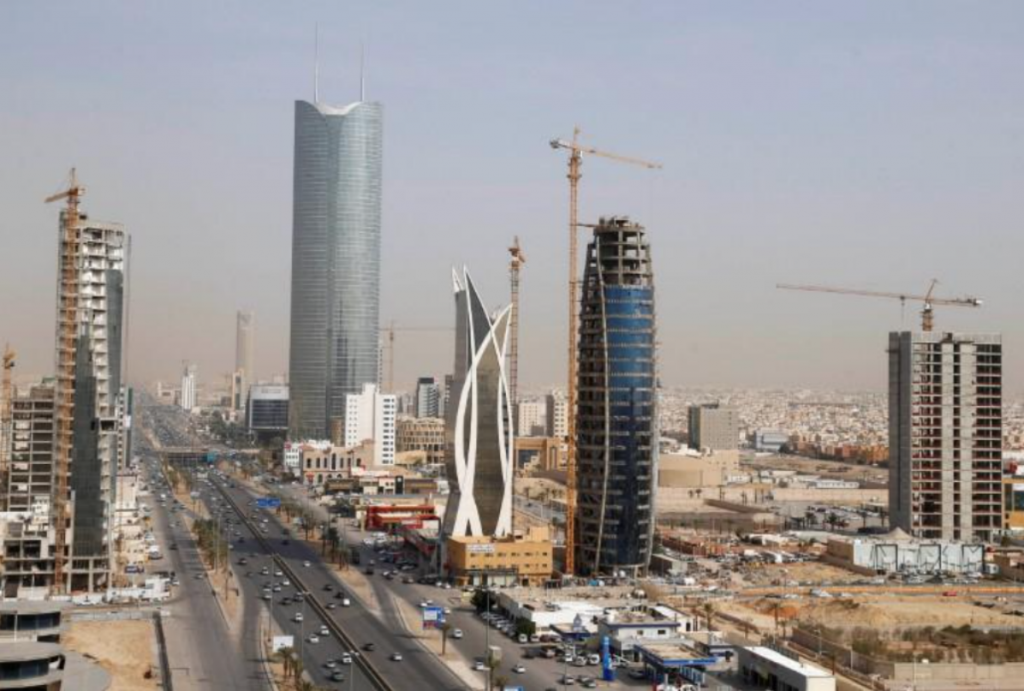
(Reuters) – Global financial titans descend on Riyadh next week for Saudi Arabia’s flagship investment conference, for the first time since the return to the White House of Donald Trump, whose taste for extravagant projects chimes with the kingdom’s big plans.
The Future Investment Initiative (FII) conference is taking place against a backdrop of a fragile U.S.-brokered Gaza ceasefire, simmering regional tensions and a kingdom that is facing growing pressure to demonstrate its massive economic transformation isn’t just hype.
The world’s largest oil exporter has in the past used the gathering to showcase its ambitious plans and ink deals to attract foreign investment while hosting world leaders and financiers under an opulent conference centre’s golden domes.
Expected attendees this year include Colombian President Gustavo Petro, BlackRock’s Larry Fink, JPMorgan’s Jamie Dimon and Citi’s Jane Fraser, who on Tuesday became the co-chair of the U.S.-Saudi Business Council. It also features tech and energy heavyweights such as Intel’s Lip-Bu Tan and Aramco’s Amin Nasser.
TEST TO SEE IF INVESTORS WILL AFFIRM CONFIDENCE
The event, whose Miami edition was attended by Trump himself in February, will be another litmus test to see whether global investors will affirm confidence in the Saudi economy.
Riyadh committed to investing $600 billion in the U.S. when Trump visited the kingdom in May. But Saudi Arabia is also striving for inward capital to bankroll Crown Prince Mohammed bin Salman’s economic plan to outgrow hydrocarbon dependence.
Many projects have been delayed amidst low oil prices and a budget deficit that has forced the kingdom to prioritise and downsize.
“Trump’s larger-than-life style and the kingdom’s love of big, attention-grabbing announcements make a good match,” said Alice Gower, partner at London-based advisory Azure Strategy.
But the follow-through on headline pledges is likely to be slow at a time when Riyadh is under pressure to deliver huge projects in time to host global events.
“Investors are still contending with the realities of a state-dominated economy, opaque decision-making, skills shortages, and heavy spending commitments,” Gower said.
DEADLINES FOR BIG EVENTS
The international gathering of the elite shows that the days when Saudi Arabia was shunned by some Western governments – only a few years ago – are now well in the past.
After taking power in a palace coup in 2017, MbS faced international censure for cracking down on dissent and for the killing of journalist Jamal Khashoggi. Saudi Arabia says Khashoggi was killed by a rogue group, though MbS has said he accepts responsibility because it happened on his watch.
Many investors are now happy to visit and open to deploying funds, but some are still wary of Riyadh’s ability to meet its big project deadlines. Among its promises: to host the 2027 Asian Cup, World Expo 2030, and, in 2034 both the Asian Games and the soccer World Cup, for which it must complete 15 stadiums — 11 of them brand new.
Some projects tied to those events are already delayed, most notably Trojena, a ski resort in the futuristic city of NEOM, a desert mega-city that was intended to house nearly nine million people by the Red Sea that has faced repeated delays.
Trojena is scheduled to host the 2029 Asian Winter Games, with Saudi officials reportedly considering postponing until 2033. Work on NEOM’s “The Line” – billed as an indoor city 170 km long and just 200 metres wide – has been scaled back to focus on completing a 2.4 km stretch to include the World Cup stadium.
“There are quite a lot of challenges that would be associated with trying to compress everything into a very short time frame, rather than sort of prioritising and pencilling investments in over a longer period,” said Edward Bell, chief economist at Dubai’s Emirates NBD.
Lower oil prices and heavy investment commitments are weighing on the kingdom’s finances, Fitch Ratings said this month.
The Saudi government’s 2026 pre-budget statement signalled a shift towards tighter spending after a sharper-than-expected widening of the 2025 deficit, now seen at 5.3% of gross domestic product.
Bell said Saudi Arabia is likely to run deficits for several years, although he credited the government with being transparent and realistic about its needs.
Asked for comment on prioritisation of projects, a Saudi Finance Ministry spokesperson said: “As we have previously stated, all priority projects remain on track and the economy continues to diversify powered by strong non-oil growth through the private sector, with a strong and disciplined fiscal position.”
The world’s biggest banks have been deepening their commitment to Saudi Arabia, with the likes of Citi and Goldman Sachs setting up regional headquarters and expanding their teams.
The kingdom, whose economic transformation is being spearheaded by the almost $1 trillion Public Investment Fund, is still far from hitting a target of $100 billion in annual foreign direct investment by 2030.
“It’s a very difficult target,” said Karen Young, a senior fellow at the Washington-based Middle East Institute, noting that the largest FDI deals continue to be in the energy sector.
While the kingdom is behind on some projects, it has been able to deliver others, most notably those led by luxury resort developer Red Sea Global (RSG).
Speaking to Reuters this week in Abu Dhabi, RSG CEO John Pagano, who sits on the board of NEOM, said changes would be introduced to help secure delivery timelines of mega projects.
“The country and the PIF are making sure we don’t fail to meet those commitments,” he added.
Reporting by Federico Maccioni and Rachna Uppal Editing by Maha El Dahan and Peter Graff
Share This:




 CDN NEWS |
CDN NEWS |  US NEWS
US NEWS 


























